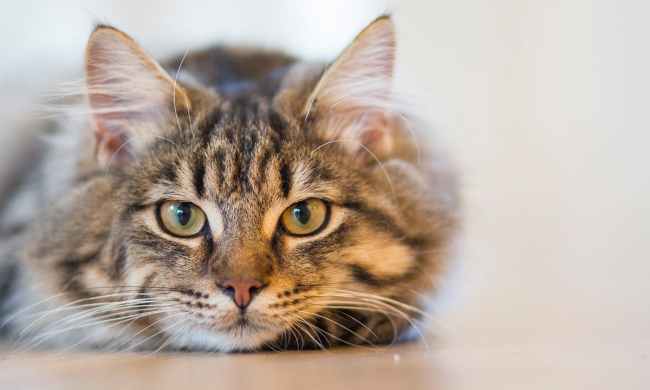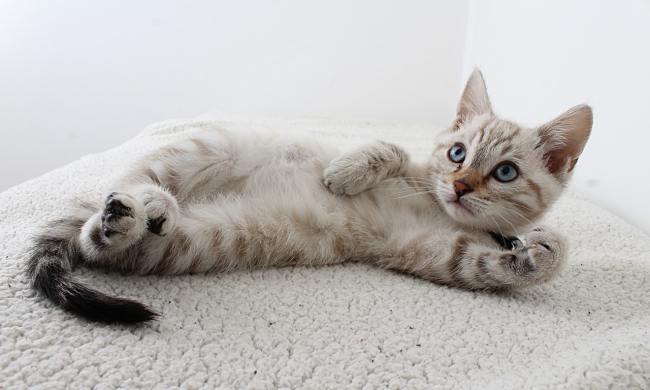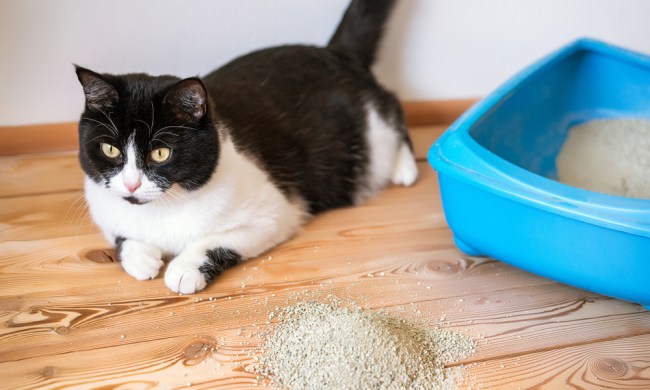If your cat is looking a little thin, he may need more calories than his current diet is providing. Cats can lose weight for many reasons, including stress, lack of appetite as they age, and high activity levels. There are even some health issues that can contribute to weight loss. If your cat needs to gain weight, you can help him fill out in various ways.
How to help your cat gain weight
In many cases, helping your cat gain weight requires a few changes in his diet. But remember you'll want to make them gradually. Suddenly switching up his food can lead to digestive upset. Instead, gradually introduce any food modifications.
Step 1: Upgrade their kibble.
Start by looking for a food that delivers better nutrition than the one you’ve been feeding him. Opting for a high-calorie food can help your cat get more calories with every meal, even though he may be eating the same amount.
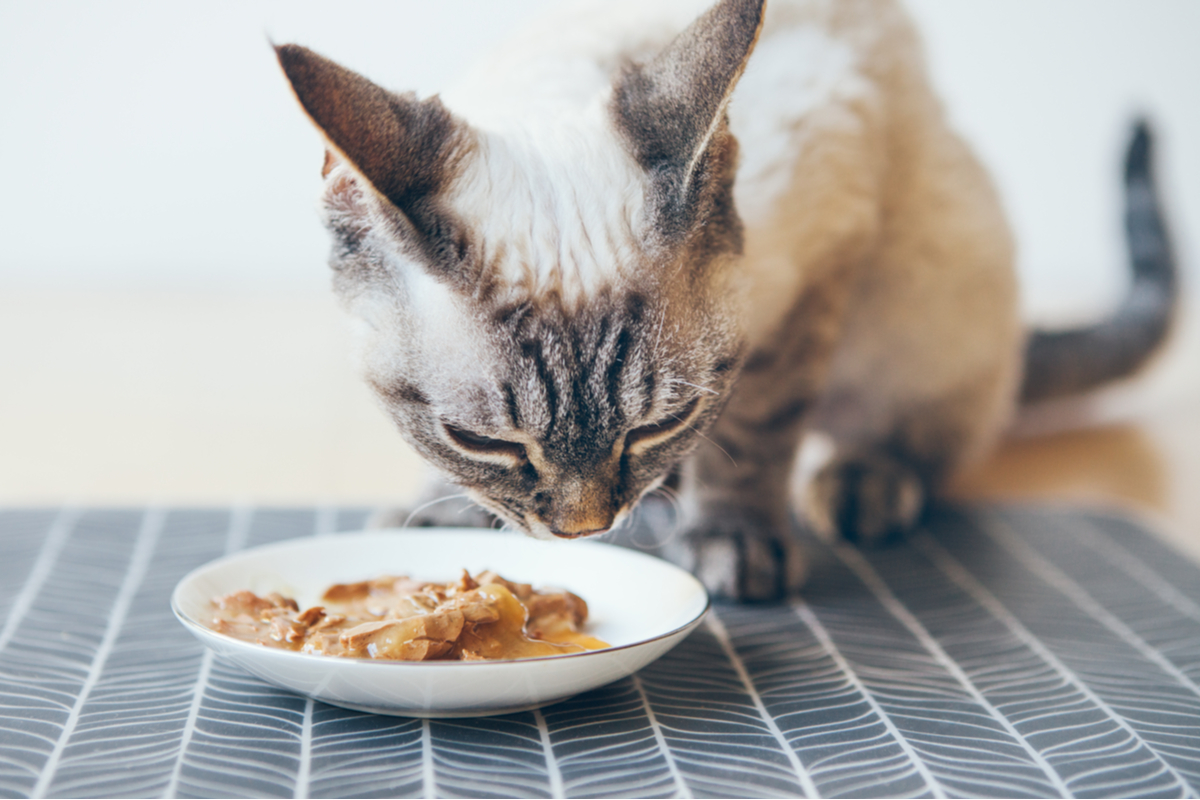
Step 2: Increase their intake.
Consider making dry food available to your cat continuously so he can graze as he pleases. If your cat is eating only a dry or a wet food, try offering the other type to encourage him to eat more. Sometimes, just changing up the food you offer can pique a cat’s interest.
Step 3: Add some flavor.
If your cat’s picky appetite is affecting how well he eats, consider changing the flavor of his food or adding a cat food topper. Food toppers make your cat’s meals more interesting and appetizing, encouraging him to finish every bowl.
Top cat weight-gain supplement options
While increasing your cat’s food is one way to promote weight gain, this strategy might not work when used alone. A cat with a poor appetite may not eat enough of the food to gain weight, so supplementation becomes important.
Weight-gain supplements contain concentrated calories to give your cat a nutritional boost without requiring him to eat more food. Many of these supplements contain calories from fish oils for a healthy addition to your cat’s diet, and they’re packed with the necessary minerals and vitamins for cats to gain weight.
Supplements are available in many different forms, including liquid and gels. You may have luck mixing a supplement into your cat’s food, which might appeal to your cat if he’s a picky eater. Some supplements are so palatable that your cat will lick them right off a spoon. Alternatively, you can feed a liquid supplement with an eyedropper, ensuring that your cat gets the full dose.
- Miracle Vet High Calorie Weight Gainer is one of those convenient liquid supplements. It’s suitable for both dogs and cats and delivers 150 calories per ounce.
- If you’re looking for a gel, TOMLYN Nutri-Cal High Calorie Nutritional Gel is safe for both cats and kittens. It provides extra calories and vitamins and works as an appetite stimulant, calorie booster, and weight gainer.
- If your cat loves his wet food, you can easily mix in Lexelium Weight Gainer and Appetite Stimulant. This powdered supplement is all natural, and it’s odorless and tasteless, perfect for picky eaters.
- In cases where your cat isn’t eating, such as if he’s recovering from a serious illness, ensuring he gets the calories he needs is essential to his health and recovery. Under the Weather Ready Cal for Cats & Dogs is designed for just this situation. This high-calorie nutritional supplement contains nine vitamins and seven minerals to support your cat’s health. It’s delivered in an oral dosing syringe with measurements so you can make sure that your cat gets just the right amount.
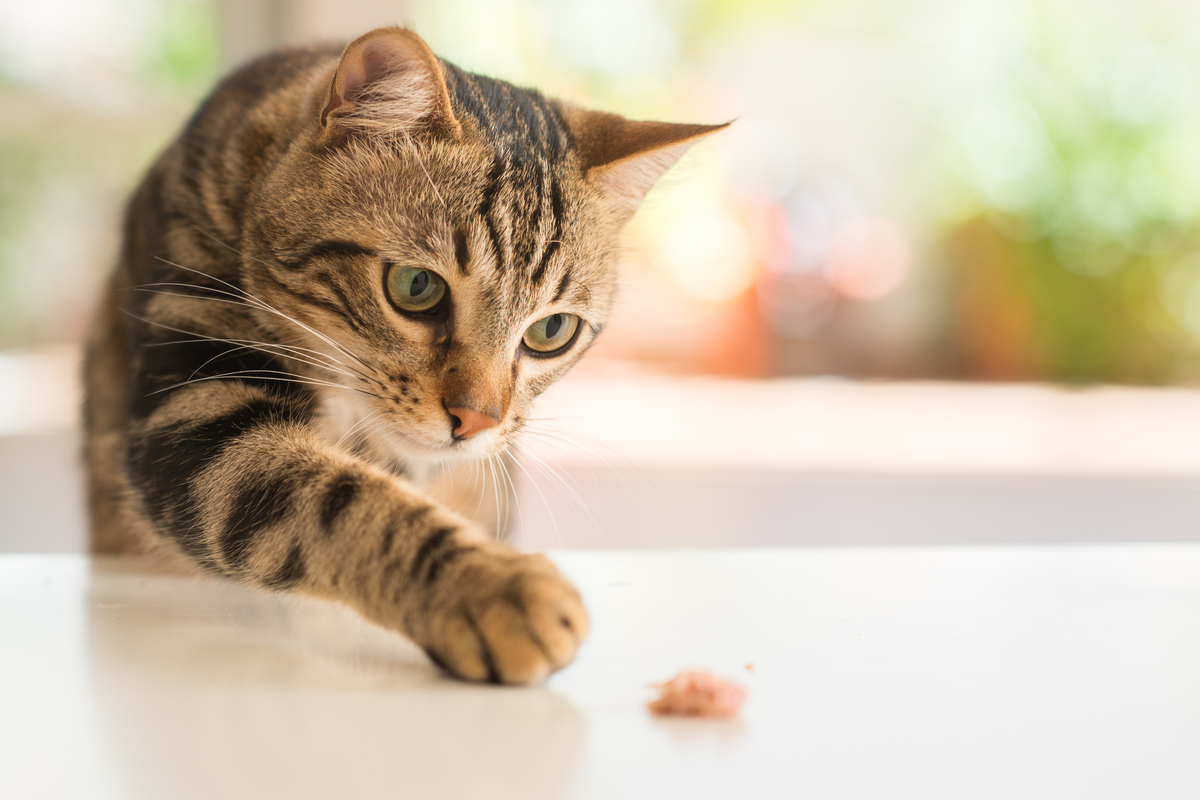
When it’s time to see a vet
Sometimes an overeating cat manages weight loss, still – and if this is the case, it’s time to call the vet. It’s a good idea to take your pet there anytime you notice unexplained weight loss, whether that occurs suddenly or gradually. Cat weight loss can be triggered by many health issues, including intestinal parasites, food allergies, infections, and diabetes. Your vet can check your cat over and make sure that none of these serious issues is behind the weight loss.
Your vet can also help you make a plan for your cat’s weight management. Be sure to share information about any supplements or foods that you’re currently feeding.
Helping your cat gain weight can take time, but it’s an important step in keeping him healthy. Your vet is an important partner in this journey and can advise you which supplements and options are best for your cat’s individual situation.

